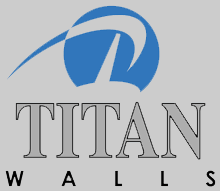LEED (Leadership in Energy and Environmental Design) is a voluntary consensus based national standard for developing high performance, sustainable buildings
LEED was created to:
- Define "green building" by establishing a common standard of measurement
- promote integrated, whole-building design practices
- recognize environmental leadership in the building industry
- stimulate green competition
- raise consumer awareness of green building benefits
- transform the building market
LEED emphasizes state of the art strategies for sustainable site development, water savings, energy efficiency, material selection, and indoor environmental quality
There are four levels of LEED certification:
- LEED Certified 26-32 Points
- LEED Silver 33-38 Points
- LEED Gold 39-51 Points
- LEED Platinum 52-69 Points
ICF can contribute up to 22 points towards a LEED certification. These points include:
- 1 point for sustainable site devolpment
- 10 points for optimizing energy performance
- 2 points for construction waste management
- 2 points for using recycled content
- 2 points for using regional materials
- 1 point for increased ventilation
- 1 point for improved air quality
- 1 point for low emitting materials
- 2 points for thermal comfort
|


